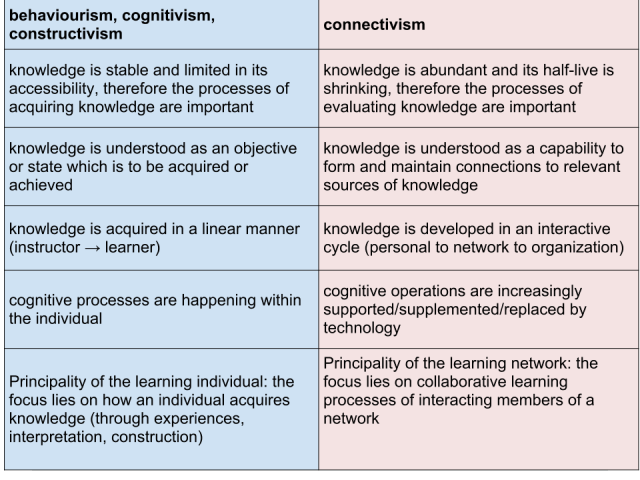(h817 - block 1, activity 13)
With his proposal of ‘Connectivism’ as a new learning theory for the digital age, George Siemens addresses limitations of such well-established theories like behaviorism, cognitivism, and constructivism which fall short of explaining how knowledge is being created, distributed and acquired in the internet.
The basic assumptions regarding knowledge and the ways it is acquired need to be reassessed with the impact of innovative technologies which lead to a rapidly evolving information ecology: knowledge is abundant, has a shrinking half-life, is developed, shared and acquired in networks and cognitive processes which used to be performed by the learning individual are increasingly supported, supplemented and/or replaced by technology.
These developments call for new approaches to understand and describe how learning is happening in a a changed information ecology. Their focus needs to move from the principality of learning individual to the learning network, from the skills of acquiring knowledge to the skills of evaluating knowledge and establishing relevant connections to keep up with the incessant evolvement of relevant knowledge. Siemens assumptions for his theory of connectivism can be opposed to those of behaviorism, cognitivism, and constructivism as below:

References
Siemens, G. (2004) Connectivism: A Learning Theory for the Digital Age [online], http://www.elearnspace.org/ Articles/ connectivism.htm(accessed 20 February 2013)